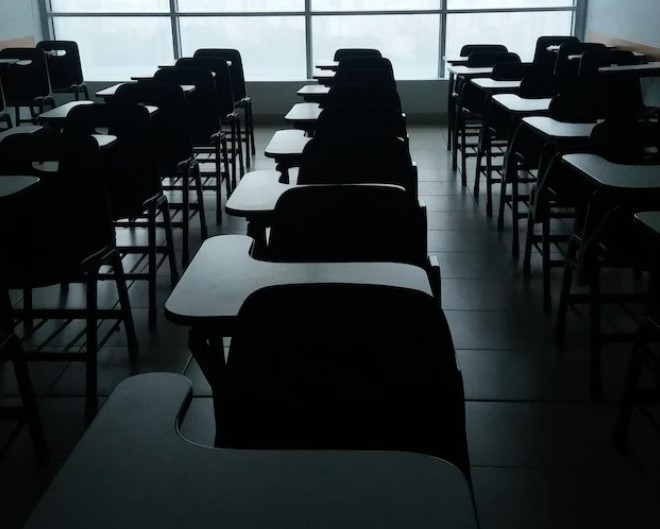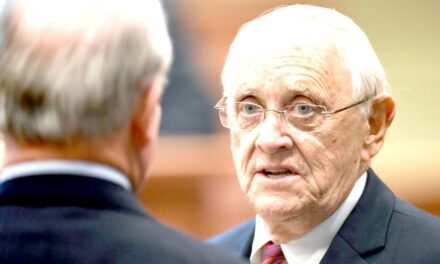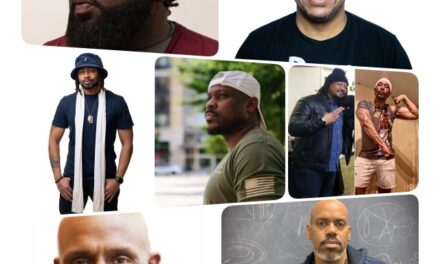By Brian Delk,
Word In Black
In America’s most extensive public school system, New York City Public Schools hope to address the disparity between the student body and teaching demographics which shows an alarming disproportion of Black male teachers.
In the U.S., Black male teachers make up 1.3 percent of educators, and in NYC alone, Black teachers make up 19 percent of all teachers, but Black males are only 4 percent of the educators across the city.
In a city where nearly 1-in-4 students are Black, teachers citywide have spoken about how and why this disparity is affecting students the most. One instructor, Kevin Hyde, a math teacher at Harlem Renaissance High School, said he had seen little to no Black men teaching over his 30 years of teaching in the city.
He worked in five different public schools citywide, with the highest number being eight Black male teachers in the entire teaching staff. He described his tenure as isolating at times, being the only Black man. He is currently the only Black male teacher in his school.
“It’s been a bumpy road,” Hyde said. “When you look to your left, and you look to your right, and you’re looking for someone to talk to about similar problems you’re having, you don’t have anybody.”
Black male teachers––and teachers in general––are often tasked with challenges outside of their job description and above their pay grade. Hyde explained how teachers may need to deal with fights and resolve disputes in their class, all while trying to grade numerous papers and teach their students effectively.
He said in his initial teaching years, his principal urged him to take the role of the disciplinary dean rather than a teaching staff member, even though he had a Bachelor’s degree in mathematics and a license to teach.
He said he refused and explained how it is common to place Black men in the role of reprimanding students due to stereotypes. He stated that his Black male students sometimes live in female-dominated single-parent households that lack an authoritative male figure.
“They are already ready to challenge [Black male teachers] because they’re used to being the alpha male,” Hyde said. “So now you [the teacher] have to come in and say, ‘I’m the alpha male. This is my classroom. These are my rules,’ and they’re looking at you like ‘I run things around here.”
He said this might be attributed to why some students misbehave in class and why some Black males may reject teaching positions. Hyde said he has seen Black male educators enter and leave the field quickly after comparing the workload to the pay grade.
“We had a teacher one year come into the profession through Teach for America. He got in, and he taught for six weeks, quit the profession, became a corporate trainer making $190,000,” he said. “If you got that type of advantage going for you, what do you want to do?”
In comparison, salaries for teachers immediately leaving college with a Bachelor’s or Master’s degree and entering the profession are approximately $61,000 to $68,000. Their wages increase with their years of experience.
In other urban school districts around the country, several initiatives are being done to address the disparity of Black male educators. Tamir Harper, the co-founder and former executive director of UrbEd Inc., attended Philadelphia public schools and obtained the degree necessary to teach at the University of Pennsylvania’s Graduate School of Education.
Throughout his K-12 experience, he saw few Black men in teaching positions. Harper explained after teaching eighth grade for a year; he witnessed why many Black male teachers left the profession.
“I think you don’t get paid enough. You are doing a lot of work. And oftentimes everything becomes the teacher’s fault or the teacher’s problem,” Harper said. “We blame everything that happens within the school building on an educator [without] looking at the holistic effects of what happens in our school buildings and what happens with our students.”
He says the mistreatment of teachers and lack of pay are significant contributors to why so many educators leave the field. School districts nationwide have coped with teaching shortages this past school year, and throughout this decade.
In NYC Public Schools, if nothing changes, the shortage worsens. Many tenured teachers could retire in the coming years, and the state will need to address this issue sooner rather than later.
To address the problem, the Department of Education said they have the “NYC Men Teach” program to support people of color in obtaining the degrees and certifications necessary to teach.
Additionally, New York Gov. Kathy Hochul said in her State of the State Address last year that she plans to revitalize the state’s teaching labor force.
Hyde said he would recommend teaching to those passionate about it without question, especially to young Black men. He said seeing a Black man in front of the classroom can change a student’s perspective about what they can accomplish.
“When you have a Black male teacher, they’re there to lead you out of darkness, out of depression, out of despair. I couldn’t ask for a much better job,” Hyde said. “When a child comes back to you and tells you that you changed the generational outlook of his family because you were that shining example of ‘you gotta go to school, you gotta work hard.’ When you can say out of your mouth, ‘I’m from the neighborhood, and I escaped. Not with a gun, not with a jump shot, not selling drugs. I escaped with a book, with a work ethic, you get a sense of pride.”
This article was originally published by the Word in Black / New York Amsterdam News.
The post In the classroom: a Black male teacher’s perspective appeared first on AFRO American Newspapers .











